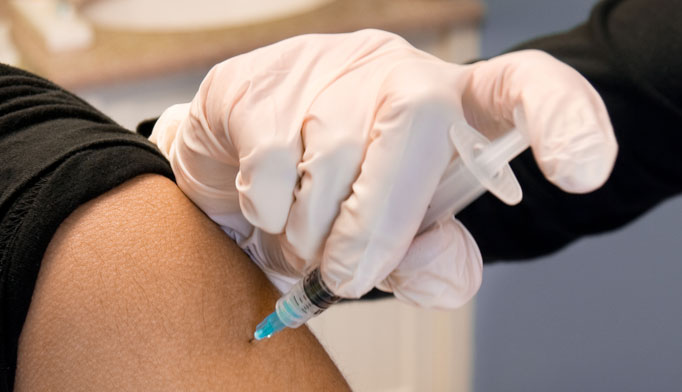Source – https://www.infectiousdiseaseadvisor.com/
The high-dose influenza vaccine (HDIV) demonstrated a 50% reduction in influenza-like illness (ILI) compared with the standard dose in HIV-infected patients, according to research presented atIDWeek, held virtually from October 21 to 25, 2020.
In a retrospective cohort study, conducted at the University of Kansas Medical Center, included 219 patients with HIV during the 2017-2018 influenza season. The median age was 53 years and 197 patients (89.9%) were men. Within the cohort, 13.7% had a HIV viral load greater than 40 copies/mL and 5% had CD4 count less than 200 cells/µL. HDIV and standard dose influenza vaccines (SDIV) were administered to 119 patients (54.3%) and 77 patients (35.2%), respectively, and 23 patients (10.5%) were unvaccinated.
A modified CDC definition of ILI, defined as fever and cough, sore throat, or shortness of breath occurred in 8 patients (10.4%) in the SDIV group compared with 6 patients (5.0%) in the HDIV group (P =.16). A broader protocol-defined ILI, defined as sore throat, cough, or shortness of breath with either fever, chills, headache, or myalgia was reported in 16 patients (20.8%) and 12 patients (10.1%) of the SDIV and HDIV groups, respectively (P =.04). There was no difference in confirmed influenza cases between groups. Vaccine side effects were mild, occurring in 11 patients (14.3%) in the SDIV group compared with 13 patients (10.9%) in the HDIV group (P =.5). Vaccine dose (SDIV odds ratio [OR], 2.34; 95% CI, 1.04-5.37; P =.04) and age in years (OR, 0.97; 95% CI, 0.94-1.0; P =.045) were associated with protocol-defined ILI. HDIV remained protective regardless of age.
The CDC reported an influenza attack rate of 14.7% in US adults and an overall vaccine effectiveness of 38% for the 2017-2018 influenza season. This study “demonstrated a 50% relative reduction in protocol-defined ILI with the HDIV compared [with] standard-dose vaccine our HIV clinic in 2017-2018,” study authors concluded. Investigators, therefore, recommended a larger prospective randomized control trial on the effectiveness of the HDIV in HIV patients.
Disclosure: One study authors declared affiliations with the pharmaceutical industry. Please see the original reference for a full list of author’s disclosures.
